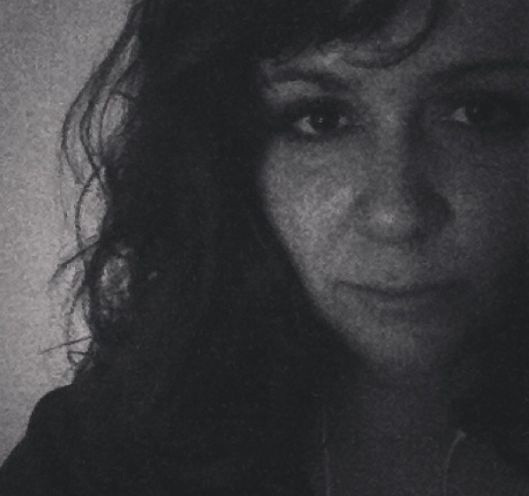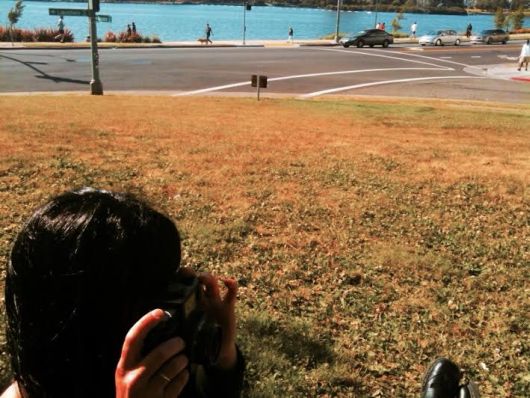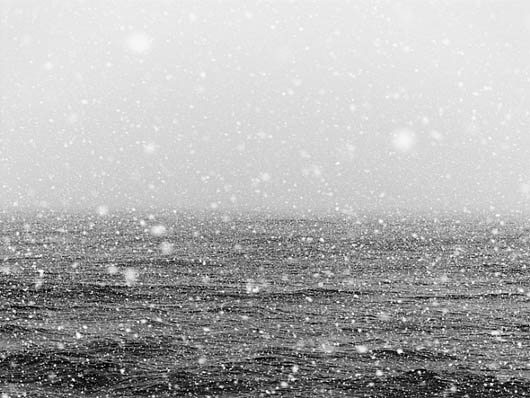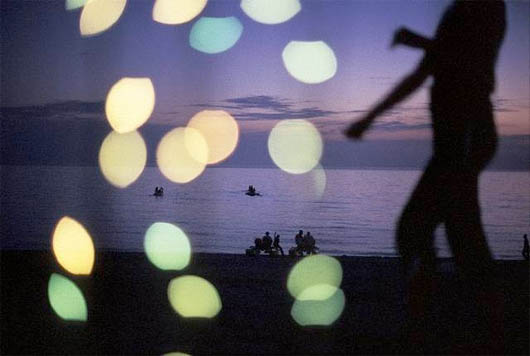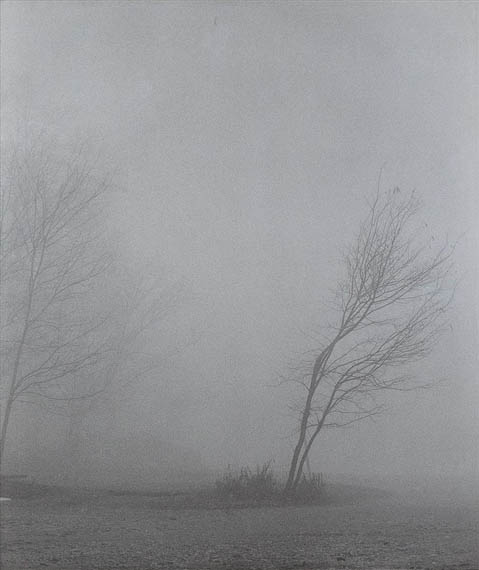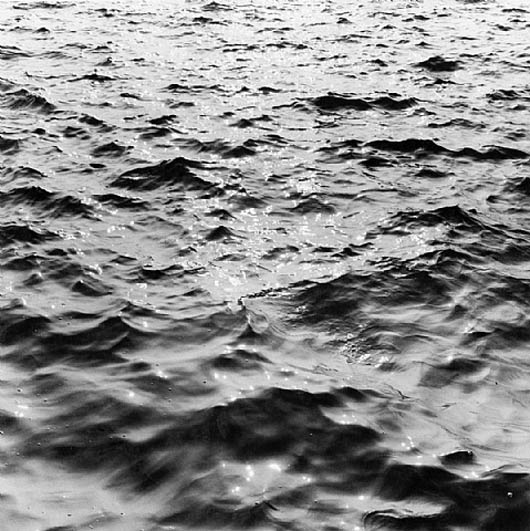 NEW YORK
NEW YORK In Which We Are Made Of Distractions
 Friday, April 11, 2014 at 12:11PM
Friday, April 11, 2014 at 12:11PM 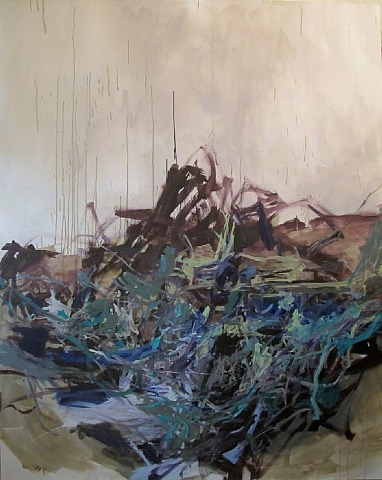
Six-Word Story
by TERESA FINNEY
On an average, otherwise mundane Tuesday night, I have found myself splayed out on a kitchen floor that does not belong to me. The wine glass that shattered in my hand as I fell has cut deeply into my palm and wrist. Blood is trickling down onto the cold linoleum floor. Standing up requires gargantuan effort, but I make it over to the sink. Grabbing onto the counter to steady myself, I stick my hand under the cold water, which stings. I notice the blood, as if a river, streaming down my chest and pooling at the collar on my shirt.
A fact I had forgotten about in the four seconds it took me to stand up and walk to the sink, is that I fell on top of the stem of the wine glass. My chest was cut up badly and bleeding all over the empty sink. I was in shock and losing blood and I needed a hospital.
Despite the blood loss and disorientation, I managed to Google map the nearest emergency room, which I discovered was located a mere block from the apartment I was staying at. I walked there. Why I did this, I don’t know. But, my hand wrapped in a towel, and my other injury-free hand holding a dishcloth to my bleeding chest, blood dripping all over the streets of Astoria, NY, I walked there.
Twelve hours and seven stitches later I wake up on the couch back at the apartment. Instinctively I check my phone and notice my battery is at 2%. I get up from the couch and walk into the bedroom. Outside it is sunny but winter still lingers in the breeze. I charge my phone, then fall back to sleep. I’ve been house- sitting for a friend for the last eight days, and the circumstances in which I’ve found myself in my 29th year of life are clearly less than ideal. The recklessness of my 20s has finally caught up to me.
I was out of work because of my hand injury and had time to think. I had time to confront in my mind how I had gotten to that exact place in life. I considered how I had corroded my youth in alcohol and self-contempt and now that I was almost 30, I terrified myself. I knew that I would be dead soon if I stayed in New York. I would not live to be 30 if I didn't get help. I knew this to be as true as the earth orbits the sun. I decided to go home.
A few afternoons later at brunch, a friend asks, “Are you still a mess?” I pick at my BLT as we talk, then just nod. Two weeks prior I had sent her a weird late-night whiskey-fueled Facebook message. “It wasn’t a nice message,” she said. I look out the window at commuters climbing the stairs to take either the N or the Q train to either Manhattan or Brooklyn. It is another sunny but chilly day. I apologize.
"I was really drunk, I’m sorry."
Ernest Hemingway's famous six-word story reads: “For sale: baby shoes, never worn.” The six word story of my 20s is “I was really drunk, I’m sorry.” Exactly four months shy of my 30th birthday, I write this with remorse.
In the days prior to leaving New York I joked that my fall and subsequent injury was some weird, physical manifestation of what had been going on in my mind during those days. Each time I laughed about it and each time after the laughter stopped, I realized I was not joking.
+
I am back amongst the soil that birthed me, my golden California. I am out west in a strong calculated effort to move aside all distractions that tempt me to forget myself again. Like all those times in the past when instead of writing that essay, I worried myself sick about why someone didn’t love me. Like every time I drank too much wine and stayed up until 4am instead of going to therapy. I did this and more for nearly a decade until distractions were all that I was made of.
Dusk in California is a spiritual experience. The golden, witching hour. The Santa Cruz mountains, and the Sierra foothills; the roaring Pacific Ocean, and the towering, ancient-as-time Redwood trees all seem to become even more vast and loom even larger under the gold setting sun. This is notable to me as Mom picks me up from the airport and we drive down Highway 152. I'll be staying with her while I get myself together. I don't know how else to say that I'm home because I had a nervous breakdown. I don't know what else to call it. When I realized I could have killed myself the night I fell in my friend's kitchen, it halted me entirely. The day before my flight is scheduled to leave JFK, I write "New York didn't almost kill me, I almost killed me." The distinction is important, I'll take the blame.
As soon as I land, I am dodging questions from friends and family.
"How long will you be here?"
"How are you feeling?"
Their curiosity is innocent enough but I feel threatened by their questions. They don't know that I wouldn't be able to answer them, not even if a knife was held to my 29 year-old throat. Text messages and emails go unanswered because I don't want to sound directionless so close to my 30th birthday. This feels like proof of ten years down the drain, like a sure-fire failure. Of what?
Before I can address any of their questions, I have to answer some of my own. I want to know how it is possible that residual heartaches leftover from childhood can keep an adult up at night, long after the city has gone to sleep and street lights hum an orange glow that beams into bedrooms. I want to know why thirty feels like a deadline. How can I reconcile within me the fact that a decade is just about over and what do I do about all of these regrets? What was the point of the last ten years?
Sometime around age 23 I learned what alcohol could do. Before then it was just an additive to parties, something I could take or leave. But soon it became a tool. I manipulated alcohol to make life more bearable, to make me more bearable to me. I liked the way I felt when I was drunk because I felt like someone else. I believed the lie that my father had told me once when I was a little girl, that I was “fundamentally flawed.” I believed the lie I sold myself, that I wouldn’t be successful or happy — ever — as long as I was the deeply imperfect person that I was. And because the only time I could ever escape myself was when I drank, I kept drinking. I rarely stopped. I was positive I was slowly killing myself and still, I did not care. Like the time I passed out drunk under an awning on 145th St in Harlem during a rainstorm. I had passed out first on the subway. I have vague memories of two strangers putting me into a cab, and the when I came to, I was using my scarf, covered in vomit, as a pillow. I knew this was not good, but drinking to that point was a punishment. Punishing myself in this way felt correct. It felt like the thing I had to do in order to cope with just being alive in this flawed body, with this flawed mind. The residual beliefs of my childhood taunted me, still lying all these years later.
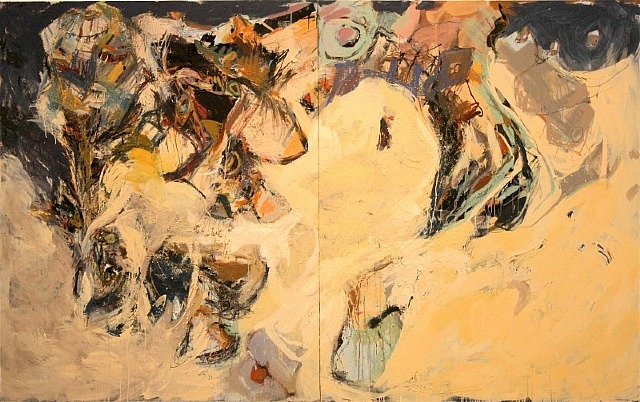 +
+
What I know for sure is this: I know that when I disappoint myself, it places a sensation akin to a ticking time bomb in the pit of my stomach. I know exactly the place in my chest where it feels like a smoldering heap of blue ashes when I have lost someone I love. I know the texture life takes on when I am hating myself and indulging in excess.
That I drank too much for ten years and have been worried about turning thirty that whole time are two directly related facts of my life.
I've been the youngest in my group of friends for years so I have heard amazing things about being in your 30s. It's like Dorothy opening the door to her tornado-stricken home in Oz, the technicolor land of mystery and possibility, they say.
"You instantly get an attitude about life. You just stop giving a fuck."
"You learn to love your body, finally."
"You have better sex!"
It's as if I've been watching an infomercial selling me the idea of Turning Thirty for the last ten years. Now I'm skeptical. I want a refund even before I've tested the product. I don't believe the hype. Thirty isn't Oz. I am not Dorothy. I feel time slipping away from me even though I understand I am wrong.
My 20s feel like cold, hard fact. When I think back to a year, two years, five years ago, I think of the mistakes. The alcohol-induced decisions I made, the ones that cannot be mended. I think about the people I angered, the ones I lied to because the truth was unutterable. I wonder how many of those people recoil at the drop of my name and if I'll be forgiven. I think about the men who served as mirrors that only reflected back to me my beliefs about myself. I think about the terrible things they did and said and how it was possible I could have permitted any of it. I think about the countless days and nights I drank too much in an attempt to forget about all the men who left, and all the ways in which I abandoned myself too. And that life goes on still.
There are regrets, more of them than fingers to count them on. There are failures. In no poetic way, simply, I had failed. Bills went unpaid. Phone calls went unanswered. Needs went unmet. Cold, hard fact. But because I am still here, none of that is unfixable. Life is still happening. It does not matter that I have failed, the sun will still set in the west tonight. It does not matter that I left New York before I did what I moved there to do, air still fills my lungs. Despite a raucous decade, breath still rises and falls in my chest. The depths and heights of being human have left their mark on me, and life still turns gold under a Californian sun.
Teresa Finney is the senior contributor to This Recording. She is a writer living in California. She last wrote in these pages about the exact address. She tumbls here and twitters here.
Paintings by Mehran Elminia.
